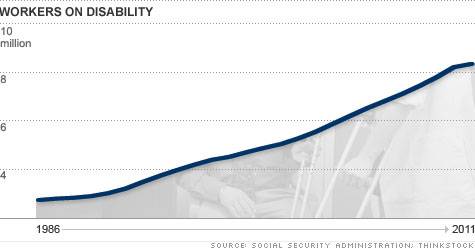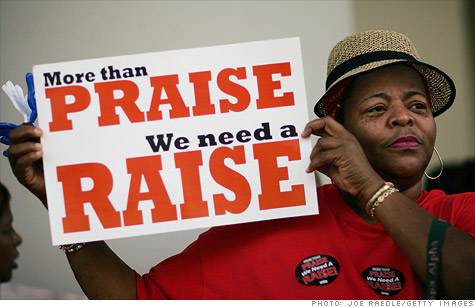spectrumc01
I give you....the TRUTH
Hypothetical question?
You currently make 60K per year.
Your mortgage is $800 per month.
You loose your job.
Unemployment will pay you $1200.00 per month.
McDonalds will pay you $7.25 for part time work, 25 hr per week.
1) Do you quit your unemployment for the Mcdonalds job?
2) Do you stay on unemployment until it runs out? risking not getting the McDonalds job.
You currently make 60K per year.
Your mortgage is $800 per month.
You loose your job.
Unemployment will pay you $1200.00 per month.
McDonalds will pay you $7.25 for part time work, 25 hr per week.
1) Do you quit your unemployment for the Mcdonalds job?
2) Do you stay on unemployment until it runs out? risking not getting the McDonalds job.







